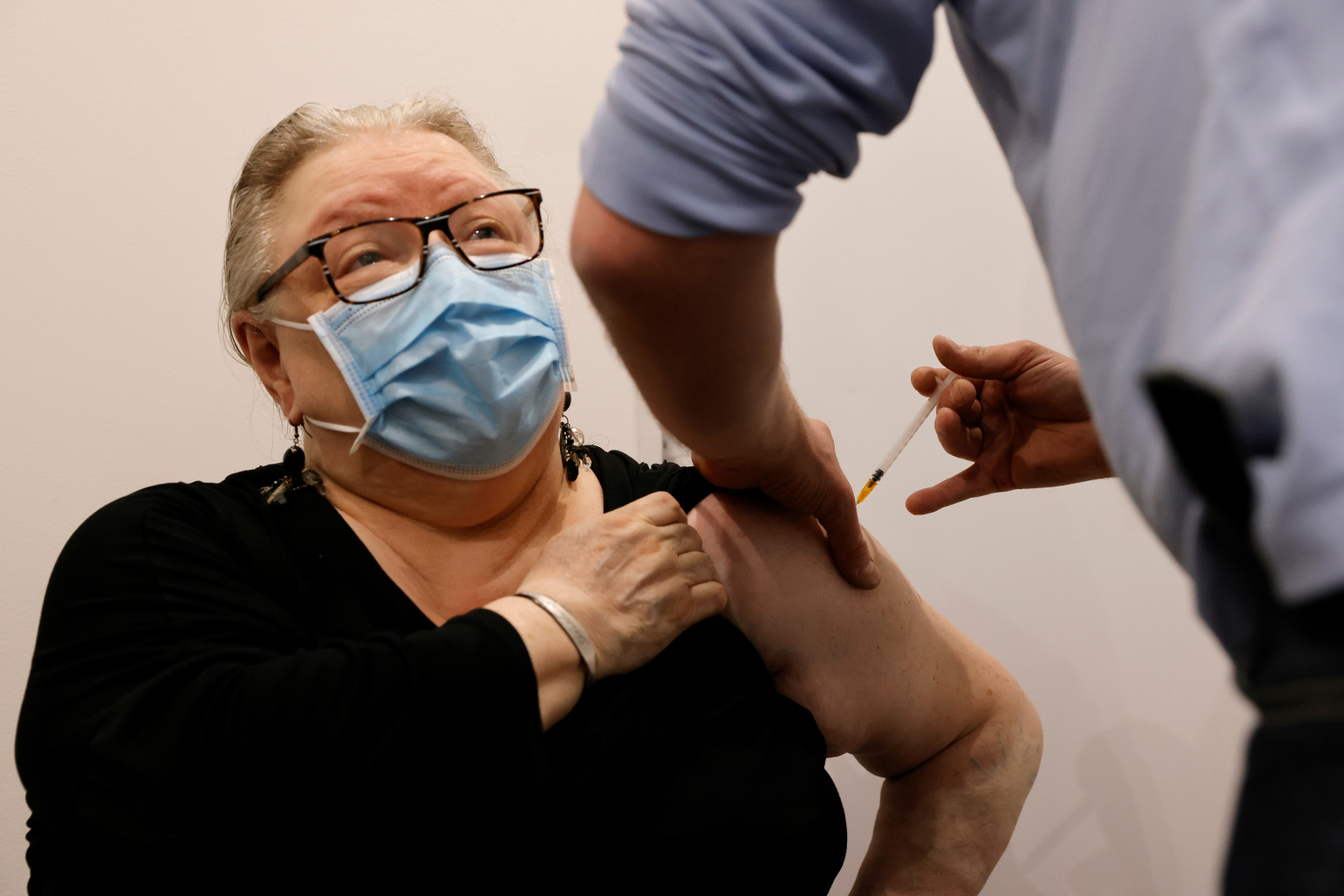WHO says safety systems working, countries should continue AstraZeneca Covid-19 vaccine roll-out
Sign up now: Get ST's newsletters delivered to your inbox

A pharmacist administers the AstraZeneca Covid-19 vaccine to a patient in Roubaix, France, on March 15, 2021.
PHOTO: REUTERS
Follow topic:
GENEVA/ZURICH (REUTERS, AFP) - The World Health Organisation's director general said on Monday (March 15) that systems meant to protect public health were working, as several countries suspended use of AstraZeneca's Covid-19 vaccine to investigate possible side-effects.
"This does not necessarily mean these events are linked to Covid-19 vaccination, but it's routine practice to investigate them, and it shows that the surveillance system works and that effective controls are in place," Dr Tedros Adhanom Ghebreyesus said during a virtual media briefing.
A WHO advisory committee plans to meet on Tuesday to discuss the vaccine, which Germany, France, Italy, Spain and Portugal have said they were pausing after several countries reported serious conditions in people who had received the shot.
The moves have thrown into disarray the European Union's inoculation campaign. Cyprus also paused inoculations with the AstraZeneca vaccine.
Venezuela said it won't allow the use of the AstraZeneca vaccine. Indonesia halted the distribution of the AstraZeneca vaccine pending an investigation.
Denmark and Norway had stopped giving the shot last week after reporting isolated cases of blood clots, bleeding or a low platelet count. Iceland and Bulgaria followed suit and Ireland and the Netherlands announced suspensions on Sunday.
Even so, the top WHO scientist reiterated on Monday that there had been no documented deaths linked to Covid-19 vaccines.
"We do not want people to panic," WHO chief scientist Soumya Swaminathan told the briefing, adding that no association had so far been found between the "thromboembolic events" reported in some countries and Covid-19 shots.
Mariangela Simao, the WHO's assistant director general for access to medicines and health products, agreed.
She noted that millions of doses of the AstraZeneca vaccine had been administered in Europe, and yet there had been no increase in blood clot events.
"So far it doesn't look like there are more cases than would be expected for the period in the general population," she said.
The fresh suspensions were a major blow to a global immunisation campaign that experts hope will help end a year-long pandemic that has already killed more than 2.6 million people and shredded the global economy.
While halting use of the vaccine as a precautionary measure was understandable, the WHO experts stressed that doing so as case numbers are on the rise across Europe would come at a price.
"The risk-benefit of... vaccinating using AstraZeneca vaccines and other vaccines outweigh the risk of Covid-19 infection," Simao said.
The issue is particularly concerning since the AstraZeneca jab makes up almost all of the doses being distributed in the first wave of the Covax global vaccine-sharing scheme aimed at ensuring access to immunisation for poorer countries.
Simao emphasised though that so far only batches made in Europe were being looked at, "not vaccines that are provided through the Covax facility, which are made in Korea, and India".
The United Kingdom, where the AstraZeneca vaccine was developed in partnership with Oxford University, says it has no concerns, while the drugmaker has said a review of safety data has shown no evidence of an increased risk of blood clots.

